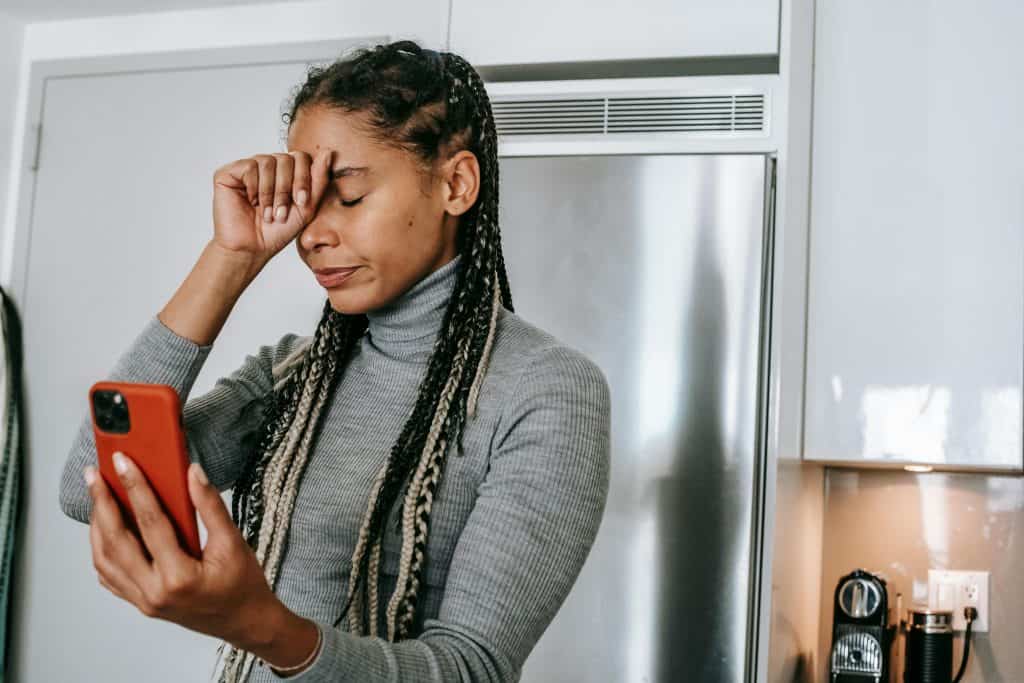Learning how to stop feeling responsible for others in life takes years of experience and personal growth.
The people we are closest to are who we will always feel a sense of responsibility for. Our parents, spouses, children and close friends are very important in our lives.
Good people usually want the best for others, even when they may not want it for themselves.
When you’re successful, healthy, and feel confident in who you are, you want your friends and family to feel the same.
Unfortunately, this isn’t very realistic since we aren’t all the same. We don’t endure the same trials, come from the same background, or always make the right choices.
You and a close friend may have a common destination, but you’ll likely take two different paths to get there.
When friends require more time to reach their final destination, and you surpass them in life, it’s normal to feel a twinge of guilt.
You want the people you love to be happy and well, but the trajectory of other people’s lives is usually beyond your control.
Have you ever wondered why people can live in proximity to each other in childhood and end up on two opposite sides of the track?
Choices.
We all have to make them, and sometimes, we don’t make the right ones. Resiliency and the ability to course correct are skills that are often learned from hard lessons in life.
You are responsible for your happiness, your success, as well as your physical, emotional, and mental health. No one else.
And in return, you aren’t responsible for the happiness, success, and well-being of others, not even your adult children.
Yes, they are adults now. At some point, you must let them find their way.
Sometimes, you can reach back with advice, monetary support, provide opportunities, and forgive people countless times, and they will remain the same.
You can’t force people to reach their destiny or adopt a healthier lifestyle. They have to desire more for their lives, and put the work in for a better outcome.
Was there ever a time when you felt bad about how an old friend’s life turned out?
Do you ever think about what you could have done differently to help them when you all were younger?
Have you ever thought about ways you could lessen the burden in their life by taking it on yourself?
This, my friends, is an example of toxic guilt.
Toxic guilt is an overwhelming and persistent sense of guilt that is disproportionate to the situation and unwarranted.
It usually stems from unrealistic expectations, a skewed sense of responsibility, or manipulation by others.
It’s perfectly okay to have empathy for others and show grace and understanding for their plights in life.
But the willingness to take up the cross for everyone’s shortcomings and misfortunes is a toxic trait that negatively affects self-preservation.

How To Trust The Process And Embrace Life With No Regrets?
Energy Givers And Energy Takers That You Need To Be Aware Of For A Prosperous Life
Five major causes for toxic guilt are:
Over-responsibility: Feeling accountable for things beyond your control
Lack of boundaries: Allowing people full access to you and/or your resources with little to no restrictions
Manipulation: People guilt-trip you to control or exploit you
Low self-esteem: Believing you are inherently at fault or not good enough
Past trauma: Unresolved emotional wounds that cause pervasive guilt
People who deal with toxic guilt the most are often people pleasers, caretakers, victims of narcissists, or traumatized from past relationships or their childhood.
Bearing the cross for people all the time isn’t normal.
Yes, it’s okay to make sacrifices when necessary, but it’s unwarranted when the person in question likely won’t do the same for you.
Ridding yourself of toxic guilt and learning how to stop feeling responsible for others in life doesn’t happen overnight.
That’s why I’m sharing 20 tips on how to stop feeling responsible for others. These tips will help you reduce overcompensation, so you’re no longer taking care of everyone and everything in between.
How do I stop feeling responsible for others?
- Focus on what’s in your control – when you take on a sense of over-responsibility to others, the line between what you can or cannot control becomes blurry.
- Set boundaries – clearly define your boundaries and where they end.
- Communicate openly – express your limitations and expectations to others.
- Practice self-compassion – understand that you can’t control others’ actions or choices.
- Recognize your worth – your value isn’t determined by others’ mistakes.
- Focus on solutions, not blame – redirect your energy towards problem-solving rather than dwelling on fault.
- Learn to say no – don’t feel obligated to take on more than you can handle.
- Find your tribe – surround yourself with supportive friends and family. Seek relationships that encourage personal growth and accountability.
- Don’t take things personal – the way people treat you and how they react to you reflects who they are. It’s rarely about you.
- Self-reflect – identify patterns and learn from them to empower yourself. Evaluate why you are a “people pleaser”, or why you take pride in fixing everything for others.
- Learn to ask for help – you deserve support. People need to show up for you as much as you do for them in return.
- Identify your unmet needs – focus on the problem areas of your life that need more attention and personal development rather than fixating on how to be a ‘problem-solver’ for others.
- Go to therapy – a professional therapist can provide guidance on navigating feelings of guilt and responsibility.
- Practice mindfulness – stay present and acknowledge your feelings without judgment.
- Take up space – allow people to be a pillar of support for you. Accept your flowers when people give them to you.

I’m a firm believer in fair exchanges. You know, the ‘you scratch my back, I’ll scratch yours’ sort of thing.
Not feeling responsible for others doesn’t mean you have an excuse to be selfish.
There’s nothing wrong with being a shoulder to lean on and lending a helping hand now and then.
But, feeling guilty about someone else’s hardships and taking on the responsibility to resolve it is a no-go.
The only person you are responsible for is you.
If you have children, you’re responsible for them until a certain age.
What you’re not responsible for are the actions and happiness of other people.
Unfortunately, those things are beyond your control.
How To Stop Feeling Responsible For Others’ Actions?
Humans make mistakes. Different things trigger our emotions. The paths we take in life vary.
As individuals, we can govern ourselves and make choices that may or may not lead us to where we need to be.
We’re autonomous beings; shaped and molded by our experiences and motivated by what we desire.
The way we react to setbacks, conflict with others, and criticism is contingent on our character.
Some people are more emotionally mature than others.
When a problem arises, there are people who can quickly bounce back and let poor decisions roll off of their backs like water.
Opposition doesn’t easily move or affect people who have struggled throughout their lives.
Unfortunately, this is not the case for everyone. There are people who internalize negativity and hold on to past traumas.
They are quick-tempered, easily overwhelmed by situational circumstances, and subjected to depression.
You rarely know the real reason people make mistakes or poor choices. Maybe they’re remaining in an unhealthy relationship, because they grew up with a flawed example of love.
Maybe they aren’t making an honest living because of greed, or pursuing a friendship for external benefits.
Do any of these scenarios sound familiar or relatable? It would take years to unpack certain personality types or poor character traits in people.
You can’t control what people do, how they react, or change their mindsets. We all have the power to influence and motivate, but when people change, it is ultimately because they have decided to.
One of the worst mistakes you can make is putting all your energy into changing someone.
You learn how to stop feeling responsible for others’ actions when you realize it’s not your job and out of your control.

5 Minute Self Care Breaks That Will Instantly Relieve Stress
Weekly Reflection Questions To Relieve Stress And Anxiety
How to stop feeling responsible for others’ happiness?
Stay positive and keep smiling regardless of the energy in the room. I taught myself this growing up. When you’re a source of positivity, there’s always darkness threatening to dim your light.
Have you ever wondered why moody people aren’t fond of happy-go-lucky people?
They use all of their good energy to fuel negative thoughts about what’s going wrong in their lives.
They complain and frequently get offended. Their smiles are often upside down, or they’re muttering insults about someone they dislike.
Unhappy people don’t just wake up on the wrong side of the bed. They’re negative and view life from a ‘glass half empty’ perspective for a reason.
Whether it’s childhood trauma, the feeling of rejection, poor self-esteem, or envy, misery takes years to manifest and it doesn’t happen overnight.
So, what can you do about someone in your circle that’s a Debbie Downer?
It’s helpful to see life through the lens of others before judging or dismissing them as ‘energy drainers’.
Debbie Downers come in all forms. Sometimes, it’s your mother, a best friend, or even your spouse.
They likely weren’t always this way. But we all know life has its way of knocking you around.
While you may get up from the many blows you’re dealt, it’s not the same for everyone, which is why you meet people where they are.
If you’re happy, stay happy. Don’t let others dictate your mood or feelings. Sure, it’s harmless to cheer up your loved ones, or be a light in their dark moments, but balance is key.
Some people’s trials can weigh so heavily on you to the point you’ve taken on their problems, too.
Don’t let this happen to you. Showing compassion and kindness towards others is fine, but some boundaries have to be in place.
Protect your energy at all costs. People will expect you to show up for them when they have no intentions of doing so in return.
Only accept phone calls when you have the mental capacity to take on additional emotional baggage from a friend.
Refer your spouse to external resources, such as therapists or mentors, when you can no longer bear the weight of what they are going through.
Distance yourself from familial problems you can’t resolve. Despite what they say, it’s okay to decline the invite or not accept the call.
Don’t allow people to put a damper on your day. We all experience ups and downs in life, but it’s not your responsibility to swap your good energy for the bad.
Stay excited about life, keep the joy in your heart, and be fruitful regardless of how anyone else feels.

What are the symptoms of toxic guilt?
Are you unsure if you’re dealing with toxic guilt or if you just have a genuine sense of concern for others?
Well, there are a few symptoms of toxic guilt and signs that you can look out for.
- Self Blame – you constantly blame yourself for things that aren’t entirely your fault. You feel responsible for the emotions and actions of others.
- Shame and Worthlessness – you feel ashamed of yourself, or believe you are flawed and unworthy.
- Unforgiveness – you have difficulty forgiving mistakes, even after apologizing or making amends with others. You struggle with forgiving yourself and moving on from the past.
- Anxiety – you experience extensive bouts of anxiety, constantly worry about the future, which often involves the outcomes for other people.
- Avoid Self Care – you neglect your needs to put other people’s needs before your own.
- Defensiveness – quick to become defensive or deny any wrongdoing in certain situations.
Keep an eye out for these signs of toxic guilt when you’re responding to issues you have no control over.
Identify why you feel a strong sense of responsibility to other people by getting to the root of the problem.
It’s okay to be understanding and supportive of others as long as you’re not compromising your mental health and safety in the interim. If you’re currently dealing with toxic guilt or shame, try a lifestyle change with the 31-Day Simple Living Challenge.
I teach entrepreneurs how to simplify their life and business with less + own their time and maximize productivity towards their personal and monetary goals.






Leave a Reply